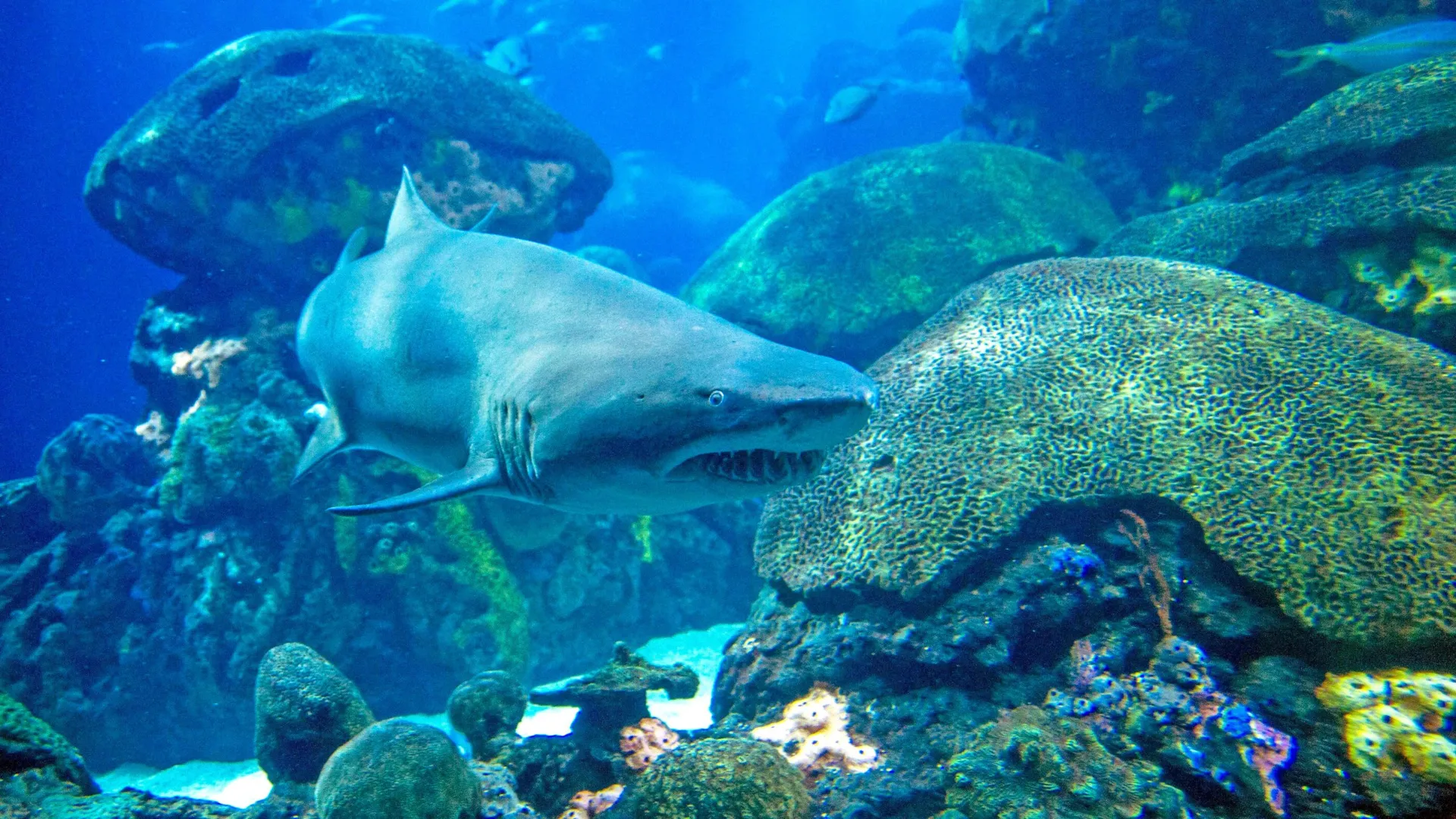Chattanooga, Tenn. (Nov. 2, 2021) – Flower Garden Banks National Marine Sanctuary (FGBNMS) in the Gulf of Mexico offers one of the most memorably beautiful and wildlife-rich dive sites in American waters. But stony coral tissue loss disease—already ravaging Floridian and Caribbean reefs— is a grave danger to this pristine underwater habitat.
Stony coral tissue loss disease spreads easily and can quickly kill off more than 30 species of coral, predominantly brain, pillar, star and starlet corals. Scientists are still investigating the cause of the disease, but experts agree that dive gear sanitation is a vital way to preserve unaffected reefs like the Flower Garden Banks.
Today, the Tennessee Aquarium and FGBNMS are releasing an instructional video for divers as a product of their Aquarium-Sanctuary Partnership (ASP) for America’s Keystone Wildlife. The video emphasizes why sanitizing to eliminate pathogens matters, and recommends best practices for enjoying reefs without endangering them.
Watch Video: Play your part in preventing the spread of Stony coral Tissue Loss Disease
For more information on prevention of stony coral tissue loss disease, visit flowergarden.noaa.gov/protection/preventcoraldisease.html
We need to do everything we can to prevent the spread of this potentially catastrophic coral disease at the Flower Garden Banks,” stated G.P. Schmahl, FGBNMS superintendent. “We appreciate the cooperation of scuba divers to make sure their gear does not inadvertently contribute to the problem, and commend the Tennessee Aquarium in taking proactive measures to help in this effort.”
“From its inland location, Tennessee Aquarium creates a virtual portal to underwater coral life in the Gulf of Mexico. The Secret Reef exhibit replicates the Flower Garden Banks coral reefs, educates the public about coral threats, and prompts divers to be good citizen stewards,” said Thom Demas, Tennessee Aquarium’s Director of Aquatic Collections and Life Support Systems.
“Related ASP work includes the aquarium raising Flower Garden Banks reef fish species at its facilities to perfect methods that might someday be used to restore reef species.” Julie Anton Randall, president of the Wildlife Restoration Foundation.
The ASP and production of this video are supported by the National Oceanic and Atmospheric Administration’s Office of National Marine Sanctuaries, the National Marine Sanctuary Foundation, and the Association of Zoos and Aquariums. Tennessee Aquarium and FGBNMS join four other ASP pairs involving National Marine Sanctuaries as part of the ASP Project of the Wildlife Restoration Foundation. The ASP is sustained by a Letter of Intent signed between FGBNMS and Tennessee Aquarium.
For more information about the Tennessee Aquarium, go to: https://tnaqua.org/
For more information about FGBNMS, visit the sanctuary website at: https://flowergarden.noaa.gov/
To learn about other ASPs and the Wildlife Restoration Foundation, please visit: www.wildlifeandparks.org.
